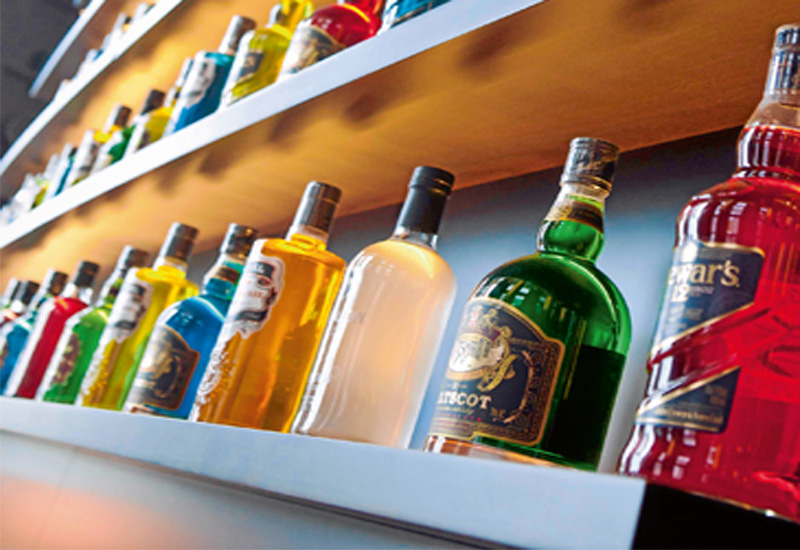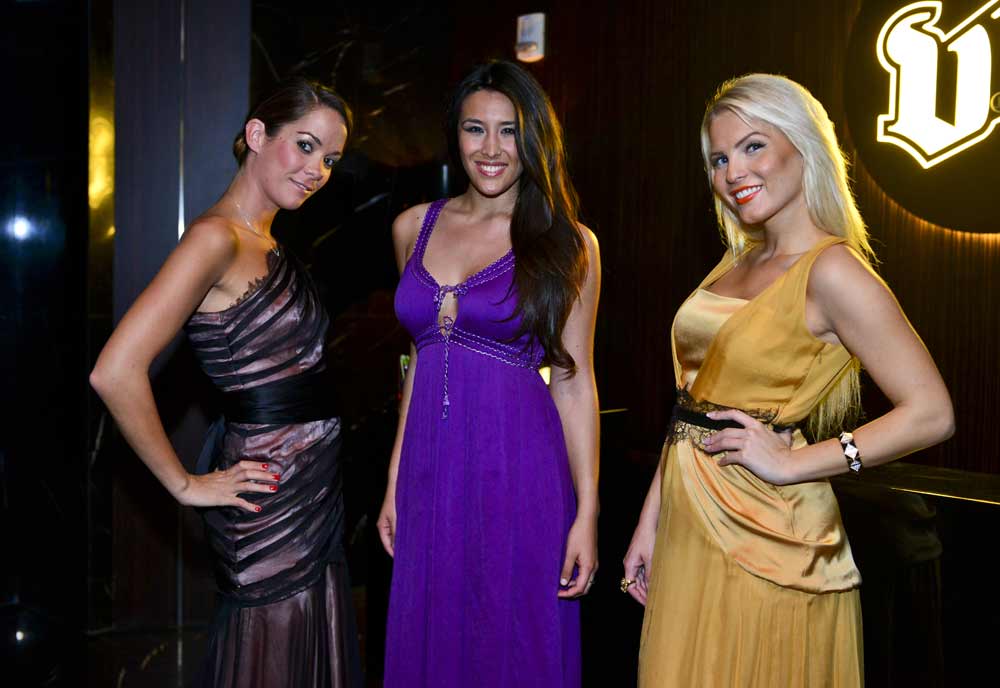F&B Focus
With a total of 14 outlets, it’s fair to say that F&B is a significant focus for the JW Marriott Marquis Hotel Dubai. In total, the restaurants can seat 2743 people.
To attract people and encourage all-important word-of-mouth marketing, director of F&B Anthony Tuttle says that when bringing the concepts already decided by Marriott’s corporate teams to fruition, creating “stories” was a key part of his focus.
“People always talk story,” says Tuttle. “When you get home from work and your spouse asks how your day was, you talk about some event that happened. So we want to create stories at our restaurants that people will talk about —hopefully positive stories that people will pass on.”

| Advertisement |
For example, at Thai restaurant Tong Thai, Tuttle decided to hire “not only just Thais but also only ladies”.
“In the Middle East, I thought it would be a nice gesture to show that this restaurant can be very successful run only by women.”
In Japanese restaurant Izakaya, he came up with the idea of having a ”wasabi girl”. “All she does is go around and grate fresh wasabi for when people order sushi. The whole concept is very fun and funky.
Japan is known, especially the younger generation, to have a funkiness about them. So we really wanted to drive that in Izakaya, and to make it a fun place,” says Tuttle.
“You have to try and create atmosphere before there’s people even in it, before you see what it is,” he says.
Another important decision was that of pricing, which Tuttle says is aimed at offering good value, again, so that people return. He says that prices were set following comparison to competitor outlets in the city.
“A lot of hotels make the misconception of always looking at other hotel restaurants, but we wanted to look at ‘who are the busiest restaurants? Why are they busy?’ especially if there are ones that are similar.
For example, there's Okku and Zuma. They’re not exactly like Izakaya, but they’re two that we benchmarked and looked at why they’re busy.
It could be location, it could be that their price points are good, because while it may be pricey you know what you’re getting, and you’re getting good food, good service and a great ambience.”
“We look at more free-standing restaurants, because we don’t want to only compete with hotel restaurants, we want to compete with the best restaurants.
And even on the marketing side we’re creating individual websites for our restaurants so that they’re not only associated with the JW Marriott Marquis hotel.
Obviously, it’ll be linked back there but we really want to give each outlet its own identity. And in doing that we have to make sure that we have a great price point but also give [guests] an experience they’ll come back for.”
At Vault for example, the bar on the 71st and 72nd floors, Tuttle says he was keen not to over-price, even though it offers premium spirits — including an AED 23,000 bottle of vodka —and views of “Burj Khalifa on one side and the Burj al Arab on the other”.
“We don’t want it to be a destination bar. Because if it’s a destination and bar and people think that they can only afford to go there on their birthday and anniversary, then we’re not going to fill it and we want to keep our restaurants full. Because it is such a competitive city and we want to make it so that when people come here, no matter what level, they’ll think they got good value.”
Another important focus area for Tuttle is his banqueting department, but interestingly, it’s the smaller groups he’s bothered about.
“When we have a big group in, they’re the easy groups, because they’re so big that the focus is already there,” says Tuttle. “So what I tell my team is that we need to live or die by the smaller groups.
Having worked in other big Marriott hotels — I opened up the 1300-room hotel in Beijing four days before the start of the Olympics — I learned that a lot of time the smaller groups, those groups of around 30-50 people that take up the smaller meeting rooms, have the tendency to be cast aside.
“And I really want to make sure that even if they’re a group of 15 people we want to treat them like IBM because they’re the ones that are going to be coming back month after month, time after time. And there are lots of them around here, and that’s what’s going to really make us successful, and keep us busy during the non-peak times.”
Through all of this, Tuttle will be focused on consistency — and proving any naysayers wrong — by “a relentless pursuit” of making sure JW Marriott standards are in place.
“I think in Dubai everyone has great hardware; great restaurants, great looks, fantastic hotels. But here I think it’s tough to get the three components together on an f&b scale. The looks are there, but great service and great food are often tough to be consistent at here in Dubai,”he observes.
“So one of the things we’re focusing on and trying to drive is that we have a consistent product when it comes to the quality of our food, and also on the service piece. And at such a large hotel a lot of people said that it couldn’t be done, but we wanted to prove that it could.”
Staff by the numbers
- Total: 1000
- Culinary: 480
- F&B front of house: 420
- Male to female ratio: 75:25
- Number of Emiratis: 8
- Nationalities: 64
- % recruited from Dubai: 30%
- % recruited from Marriott: 20%
- % applied online: 70%
- No. at Recruitment open day: 5500










 Search our database of more than 2,700 industry companies
Search our database of more than 2,700 industry companies









